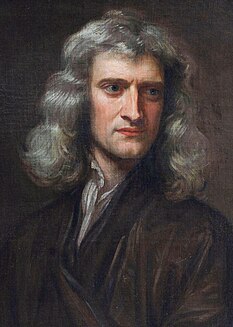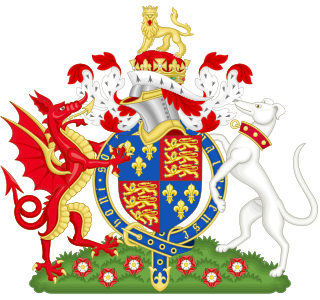| |
| Long title | An Act to Repeale the Statute made in the fifth yeare of King Henry the Fourth against the Multiplying Gold and Silver. [2] |
|---|---|
| Citation | 1 Will & Mary c 30 |
Status: Amended | |
| Revised text of statute as amended | |
The Royal Mines Act 1688 (1 Will & Mary c 30), [3] sometimes referred to as the Mines Royal Act, is an Act of the Parliament of England.

The Parliament of England was the legislature of the Kingdom of England, existing from the early 13th century until 1707, when it merged with the Parliament of Scotland to become the Parliament of Great Britain after the political union of England and Scotland created the Kingdom of Great Britain.
Contents
This Act was partly in force in Great Britain at the end of 2010. [4]
The Royal Mines Act 1688 repealed the Act Against Multipliers (5 Henry IV c. 4) (1404) which had made it a felony to create gold and silver by means of alchemy.

Henry IV, also known as Henry Bolingbroke, was King of England from 1399 to 1413, and asserted the claim of his grandfather, Edward III, to the Kingdom of France.

Alchemy was an ancient branch of natural philosophy, a philosophical and protoscientific tradition practiced throughout Europe, Africa, and Asia, originating in Greco-Roman Egypt in the first few centuries AD.
The Act specified also that "no mine of tin, copper, iron or, lead, shall hereafter be adjudged, reputed, or taken to be a royal mine although gold or silver may be extracted out of the same." In doing so, the Act brought to an end the monopolies of the Society of Mines Royal and the Company of Mineral and Battery Works which had enjoyed exclusive rights to extract metal from certain mines.
The Society of the Mines Royal was one of two English mining monopoly companies incorporated by royal charter in 1568, the other being the Company of Mineral and Battery Works.
The Company of Mineral and Battery Works was,, one of two mining monopolies created by Elizabeth I. The Company's rights were based on a patent granted to William Humfrey on 17 September 1565. This was replaced on 28 May 1568 by a patent of incorporation, making it an early joint stock company. The Society of the Mines Royal was incorporated on the same day.
According to Isaac Newton, in a letter to John Locke, Robert Boyle 'procured the repeal of the Act of Parliament against Multipliers'. He further claimed that Boyle must then have had in his hands a recipe for the production of gold by alchemical means.

Sir Isaac Newton was an English mathematician, physicist, astronomer, theologian, and author who is widely recognised as one of the most influential scientists of all time, and a key figure in the scientific revolution. His book Philosophiæ Naturalis Principia Mathematica, first published in 1687, laid the foundations of classical mechanics. Newton also made seminal contributions to optics, and shares credit with Gottfried Wilhelm Leibniz for developing the infinitesimal calculus.

John Locke was an English philosopher and physician, widely regarded as one of the most influential of Enlightenment thinkers and commonly known as the "Father of Liberalism". Considered one of the first of the British empiricists, following the tradition of Sir Francis Bacon, he is equally important to social contract theory. His work greatly affected the development of epistemology and political philosophy. His writings influenced Voltaire and Jean-Jacques Rousseau, many Scottish Enlightenment thinkers, as well as the American revolutionaries. His contributions to classical republicanism and liberal theory are reflected in the United States Declaration of Independence.

Robert Boyle was an Anglo-Irish natural philosopher, chemist, physicist, and inventor. Boyle is largely regarded today as the first modern chemist, and therefore one of the founders of modern chemistry, and one of the pioneers of modern experimental scientific method. He is best known for Boyle's law, which describes the inversely proportional relationship between the absolute pressure and volume of a gas, if the temperature is kept constant within a closed system. Among his works, The Sceptical Chymist is seen as a cornerstone book in the field of chemistry. He was a devout and pious Anglican and is noted for his writings in theology.
The Royal Mines Act 1688, except the last section, was repealed by section 1 of, and the Schedule to, the Statute Law Revision Act 1867.

The Statute Law Revision Act 1867 is an Act of the Parliament of the United Kingdom.










